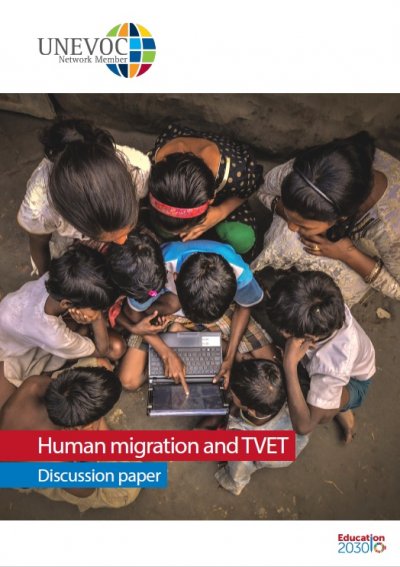
The UNESCO-UNEVOC International Centre: Who We Are | What We Do | Working With Us | Get in Touch
The UNEVOC Network: Learn About the Network | UNEVOC Network Directory
For Members: UNEVOC Centre Dashboard
Thematic Areas: Inclusion and Youth | Digital Transformation | Private Sector Engagement | SDGs and Greening TVET
Our Key Programmes & Projects: BILT: Bridging Innovation and Learning in TVET | Building TVET resilience | TVET Leadership Programme | WYSD: World Youth Skills Day
Past Activities: COVID-19 response | i-hubs project | TVET Global Forums | Virtual Conferences | YEM Knowledge Portal
Our Services & Resources: Publications | TVET Forum | TVET Country Profiles | TVETipedia Glossary | Innovative and Promising Practices | Toolkits for TVET Providers | Entrepreneurial Learning Guide
Events: Major TVET Events | UNEVOC Network News

| Author/s: | Volker Wedekind, Haya Fakoush, Joyceline Alla-Mensah |
| Published: | 2019 |
| Licence: | CC BY-SA |
In the context of increased international migration, the importance of education and training and a global governance of migration is widely acknowledged in academic and international development debates.
This discussion paper looks at the relationship between migration and technical and vocational education and training (TVET), distinguishing between between forced, labour and environmental migration.
The discussion paper was prepared in the context of UNESCO-UNEVOC's Bridging Innovation and Learning in TVET (BILT) project. The BILT project seeks to support TVET institutions in addressing the transformation challenges facing TVET systems today, and to explore innovative approaches and new practices. The BILT Project is carried out in collaboration with the UNEVOC Network, coordinated by UNESCO-UNEVOC with the support of the German Federal Institute for Vocational Education and Training (BIBB) and sponsored by the German Federal Ministry of Education and Research (BMBF).